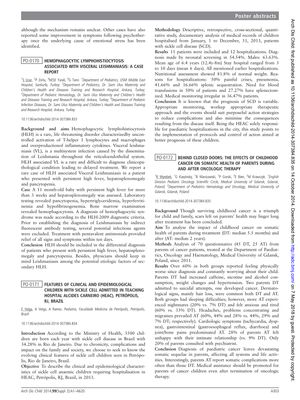Behind Closed Doors: The Effects of Childhood Cancer on Somatic Health of Parents During and After Oncologic Therapy
October 2014
in “
Archives of disease in childhood
”

TLDR Childhood cancer diagnosis leads to long-term physical and emotional health issues in parents.
The document reports on a study that aimed to analyze the impact of childhood cancer on the somatic health of parents both during treatment (DT) and after treatment (AT) of their child. The study involved 70 questionnaires completed by parents of cancer patients treated at the Department of Pediatrics, Oncology, and Haematology at the Medical University of Gdansk, Poland, since 2011. The results showed that over 60% of parents in both groups felt physically worse since the diagnosis and were constantly worried about their child. Parents DT experienced increased consumption of caffeine, nicotine, and alcohol, changes in weight, hypertension, and some had dermatological signs like hair loss. Two parents DT attempted suicide, and one developed cancer. Parents AT experienced more nightmares, anxiety, tiredness, headaches, concentration problems, migraines, cardiologic symptoms, gastrointestinal issues, and joint/bone pains than those DT. Additionally, 28% of parents AT were unhappy with their intimate relationships, and only 20% consulted with a psychiatrist. The study concluded that the diagnosis of pediatric cancer leaves devastating somatic sequelae in parents, affecting all systems and life activities, and that medical assistance should be promoted for these parents even after the oncologic therapy of their child has ended.



